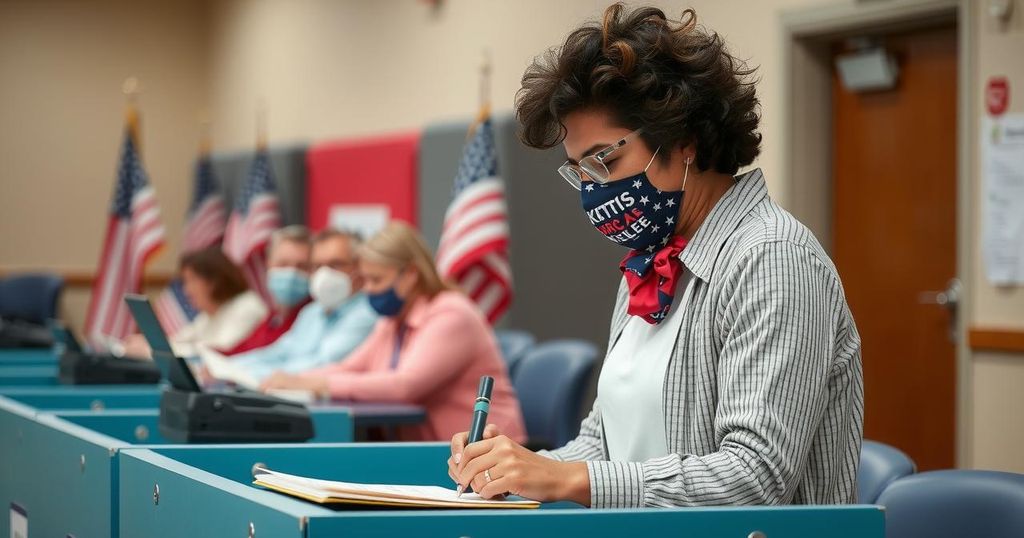Ongoing Challenges in Pennsylvania’s Electoral Process Amidst Calls for Reform

Despite Pennsylvania’s successful execution of the 2024 elections, significant issues remain unresolved within the electoral system. Key election officials, such as Tim Benyo, emphasize the need for reforms to address workload pressures and enhance efficiency. Legislative gridlock has hindered progress in essential areas like pre-canvassing and voter registration, posing risks to the integrity and sustainability of election management.
Five years subsequent to the modifications in Pennsylvania’s election laws, the state’s electoral processes exhibited commendable efficiency in the 2024 elections; nonetheless, significant underlying issues persist. Tim Benyo, Lehigh County’s Chief Clerk of Elections, articulated concerns regarding the sustainability of current practices due to a lack of necessary reforms. Despite a successful election, these unresolved problems are causing valuable election officials to exit the field, jeopardizing the integrity and preparedness of electoral management.
State and county leaders have long requested essential reforms to Pennsylvania’s election code, such as extending the timeline for pre-canvassing mail-in ballots and revising the voter registration deadline. Additional inquiries have emerged for further improvements, including implementing a robust early in-person voting system. Unfortunately, political stagnation, coupled with the contentious nature of electoral politics, has stalled these proposals. Mr. Benyo echoed this sentiment, stating, “I do not know how long it is sustainable on the human side of it,” emphasizing the human resource challenges that jeopardize electoral efficacy.
Despite receiving financial support from lawmakers to enhance election technology, such as faster ballot-counting machines, Benyo highlighted that these measures merely serve as temporary fixes to deeper systemic issues. In the lead-up to the recent election, Benyo’s office faced overwhelming workloads, demanding excessive overtime, which he deemed unsustainable. He remarked, “I do not think it is sustainable for offices to have people working 80 hours of overtime in a two-week pay period; one hundred and sixty hours in two weeks is too much.”
Furthermore, rising demand for mail-in ballots resulted in prolonged wait times for voters, and an overloaded voter database caused additional delays. Strained resources have also led to tensions among voters, with Mr. Benyo noticing heated exchanges stemming from confusion about voting materials. He candidly stated that the timeframe for processing electoral tasks has significantly compressed, indicating that “everything gets condensed into those two weeks.”
As electoral administrators explore alternative methods from other state practices, the outlook for 2025 remains uncertain. Current political dynamics in the General Assembly reveal a profound divide, impeding any meaningful change. A bill aimed at allowing election workers to scan mail-in ballots prior to Election Day failed to progress, illustrating the bitter partisan rift on electoral reforms. State Representative Michael Schlossberg expressed caution regarding progress, stating, “I am deeply worried it will be the same song and dance unless they get their pound of flesh, which is overly restrictive voter ID.”
In light of these challenges, Benyo’s primary goal is to garner any improvements to relieve the pressures faced by his team during electoral cycles. The persistent reluctance to adopt necessary electoral modifications poses a threat to the integrity and effectiveness of Pennsylvania’s electoral processes.
This article discusses the ongoing challenges faced by Pennsylvania’s election officials five years after significant changes to the state’s election laws. Despite a well-executed election in 2024, systemic issues such as insufficient pre-canvassing time for mail-in ballots and outdated voter registration practices continue to linger. These complications, compounded by political gridlock, have caused distress among election administrators, leading to increased workloads and the loss of experienced staff. The article highlights the need for substantive legislative reform to address these issues.
In conclusion, Pennsylvania’s election process, while efficient in recent years, is plagued by unresolved issues stemming from outdated regulations and excessive workloads placed on election officials. The continued absence of legislative reforms threatens both the operational integrity of elections and the job satisfaction of dedicated electoral workers. As the political landscape remains divided, the prospect for meaningful change in the upcoming legislative session appears bleak, raising concerns for the future of electoral administration in the state.
Original Source: www.lehighvalleynews.com







